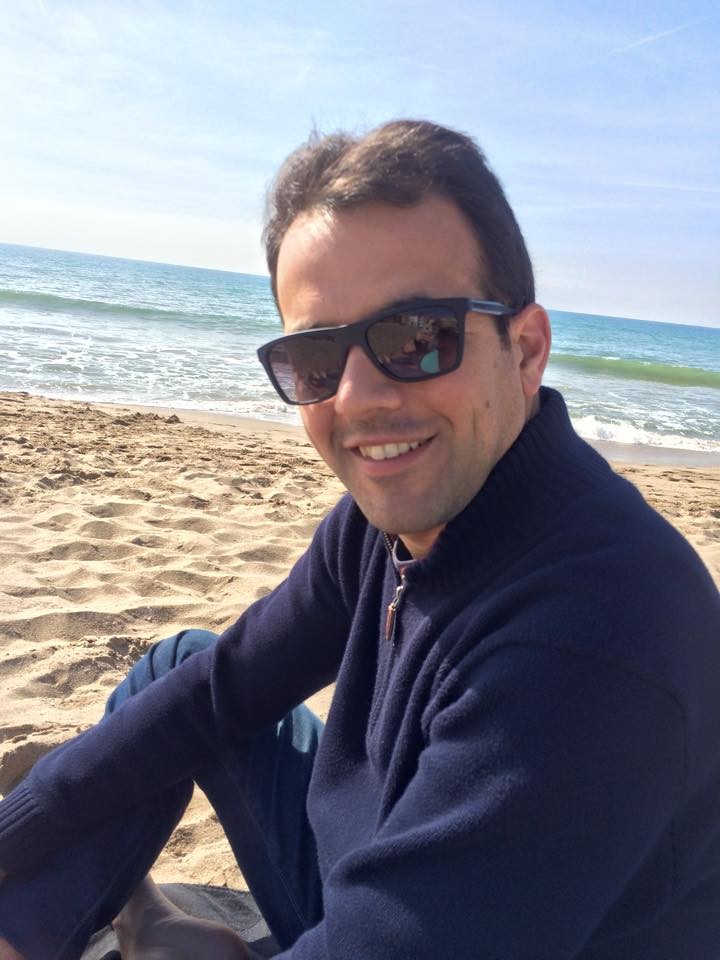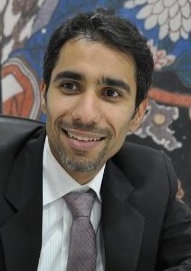Carles Vergara-Alert is an Associate Professor at the IESE’s Financial Management Department. His research focuses on how frictions in the real estate markets affect the decisions of investors, managers and households. In this blog entry, he shares personal insights about himself as well as advice for current MBAs. He talks about the importance of constantly reinventing yourself and the life lessons we can learn from finance.
To learn more about his background, check out his full biography.
What made you choose a career in academia?
I’m a civil engineer which has nothing to do with finance and now I am a finance professor.
When I finished my undergrad degree and started working, I realized that you need a lot of business skills. This is similar to a lot of you in the MBA right now, you have a technical job and then you decide that you need more management skills. So I realized that you also need finance skills if you are working in engineering, to finance a project, to deal with raising capital and such. I decided to go for a Masters in Finance and I did my masters in financial engineering. Then I started working for a hedge fund and realized that I actually liked academia a lot so at some point I had to make the decision between industry and academia. As you know, the NPV of going to academia is negative. It’s always better to go to industry if your goal is solely to maximize economic profits, but in academia you have other ‘intangibles’.
Intangibles won in the end.
Intangibles won versus economic profits.
Should this be the moto of IESE?
I think most of the people at IESE have this sort of philosophy because otherwise they wouldn’t be here. Society in general encourages us to make a lot of money, for example, you do so much consulting stuff so you can maximize your personal income. I wouldn’t be sitting here with you right now if I wanted to maximize profits. So this spirit of serving the community and helping others is very present in academia in general, but in IESE it is way more evident since it is part of the mission of the school.
What will be a major trend or challenge that we’ll face as MBA’s in 2-3 years’ time?
I think that the big change now, is that you don’t know what you’ll be doing 10 years from now. Most of the jobs today will probably not exist 10 years from now. That wasn’t the case in the past. You could get a marketing career and you’d know what your future will be like, more or less. Now you don’t know. Back in the day, the financing of operations was quite simple. Now it’s all getting more complicated. Markets are getting more global, and I think the big challenge for you is that you have to be innovative and reinvent yourself every year. This is a big challenge.
The probability that you MBAs will need to get executive education in the near future, like in 5 years’ time, is quite high. In the past, you didn’t have this challenge, you were specializing in a certain field and the older you got the more experience and specialized you got, until you retire.
This leads to another problem, how do you innovate yourself while having a daily job?
Exactly, I think you have to allocate some time and energy in your mind to reflect and innovate. You have to think about your short term plan and your long term plan. Of course, you must work on your daily tasks but also dedicate a little time for designing and achieving your 5 years plan for example. You have to be always thinking, ‘what do I want to be in 5 or 10 years from now?’
Can you talk a little bit about your area of research, Asset Pricing?
Yes sure. So basically, everything has a price.
Especially if you’ve seen the movie ‘Indecent Proposal’
I’m talking about assets. Assets have a price. I know you said that humorously and as a joke, but there is some truth on that. If you consider people as assets, then things like that happen. Which is exactly what shouldn’t happen.
So, all assets have a price, but what’s the price?
We know the price of assets that are sold regularly. An iPhone for example, the same type of product is sold to so many people, so you know the price because of all those transactions, but there are things that you don’t know the price of, like stocks, the stock markets, only like 1-2% of the stocks of a company are traded every day and the rest of the 98% are not traded. So how do we know the price of the stocks? Is the price of the stock based on the price of those that are traded? No, we have to look at the fundamentals of the company and see if the stock is overpriced or not.
Basically, asset pricing deals with setting up or analyzing the prices of all those types of assets. Contracts, options, options to buy a piece of land 3 years from now, what’s the price for that? It depends, right?
If you weren’t in academia, what would you be doing?
Probably working in finance. I was working in a hedge fund before so I’d probably be working in something similar.
However, I would miss this ‘community’ aspect of being in academia.
What are your hobbies?
That’s been changing over time. I used to play basketball but now with this job and my family it’s very hard to commit to a weekly game. So many years ago I started running. I like music and I play the piano. These two things, running and playing the piano are more flexible in terms of time, I don’t have to commit to a certain specific time for them.
Are you running in any of the marathons here?
No because I broke my meniscus a few weeks ago, hopefully I’ll recover and go back to running. I also play tennis but that’s more like for fun on the weekends.
Professor Anton plays tennis as well, have you played together?
We should play more often but it’s hard to get two IESE professors to be available on the same dates.
Have you had a funny situation occur during one of your classes?
Once, I mixed up the class ending time, I thought it would end a half hour later, and we continued discussing the case. At some point I saw the students getting fidgety and people started to, you know, pack things up, and I was thinking‘what’s going on?’, but this went on for 20 minutes! Nobody said anything, and at some point I said, ‘hey guys what’s going on?’ And someone mentioned that we’re a bit over time and I told him ‘okay in 2 minutes we’ll be done’ and he replied ‘no, no, we’re 20 minutes late’.
You guys get very nervous when a professor runs over time, just a minute overtime and you act like it’s the end of the world.
What is your favorite type of food or cuisine?
I like eating a paella by the beach. My wife likes Mexican food so once in a while we have to go to a good Mexican place.
Did you try NIÑO VIEJO by Albert and Ferran Adrià?
No I haven’t. I should try it.
It’s next to TICKETS.
I am actually going to Tickets next week. It’s a tapas place, I know it’s a little bit ‘fancy’ but it’s good. I have been to elBulli back when it was open. Twice actually.
You must have good connections.
No, I went before it was famous. It was famous at a national level but not at a global level. Back then it was possible to go with only a few weeks’ advance reservation, before they made it to the NY Times and all the international media.
Favorite book and/or author?
I like mystery, movies and books, now unfortunately for the last couple of years I don’t have time to read a lot. I used to read in bed before sleeping but now that I have kids, once I get in bed I pass out after a minute.
Favorite mystery book?
I read all the Agatha Christie and Sherlock Holmes books.
‘The Name of the Wind’ by Patrick Rothfuss for example?
Yes exactly, I like Ildefonso Falcones’ books as well.
I also sometimes read those fun economics books like ‘Freakonomics’, ‘The Undercover Economist, ‘Naked Economics’ and so on. They are work related, but also fun.
Malcom Gladwell
Yes exactly.
Closing comments?
I’d say, life is about an equilibrium of things. You have to work hard and also have fun. You have to think about the short term and also the long term. It’s always an equilibrium and you shouldn’t leave it unbalanced. You have to do whatever your heart tells you but also you have think with your mind. In the long run, those people who are most happy are the ones that keep that balance and equilibrium.
This is a very ‘finance’ oriented advice. Like in finance, you want to get a balance between debt but not too much to put the company at risk for example. A balance between risk and return.
We have a saying in Arabic that goes like “always hold the stick from the middle”.
Yes, that’s the equilibrium.
I’d like to thank Professor Carles Vergara for making the time to do this interview.
The Real Estate Club, with Professor Vergara arranged a 2 day course on Real Estate, which wasn’t included in the course list for 2nd years. It was very beneficial for me, and I recommend the class of 2017 to do the same next year.
Until the next issue…
Abdulaziz AlYousifi




i really love this school, i am a chemistry graduate, is it possible for me to MBA easily what are the requirement for international students
Wow, I really liked the interview with Carles.
He seems to be a really cool guy and also seems he knows a lot about business.
Best, hope to see more interviews here 🙂
this school is very nice i really love this school, i am a chemistry graduate, is it possible for me to MBA easily what are the requirement for a good students.
Yes, it is possible. I recommend visiting our website for details mba.iese.edu
Fantastic interview. I am a letting agent in the UK and I wish I could have his expertise in real estate, I would surely rock 🙂
nice school
Wow, Nice School. I am interested to join there.
This school is very nice i really love this school, I am a chemistry graduate, I am really happy for this school….. i love it…
i really love this school, Thanks dear admin
This Is Fantastic interview. i’m from usa is it possible for me to MBA easily what are the requirement for a good students.
Great interview.